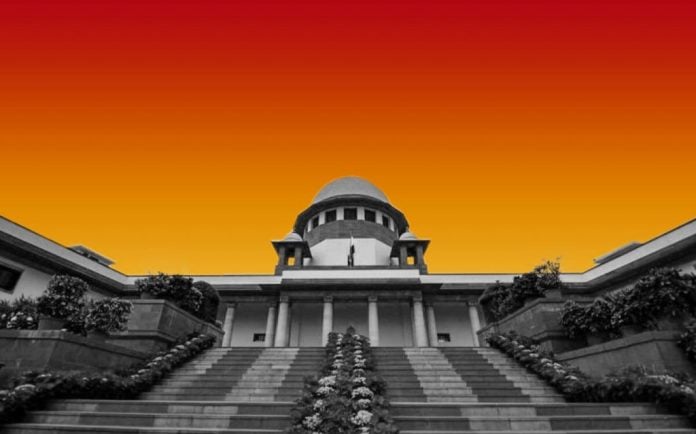The All India Majlis-e-Ittehadul Muslimeen (AIMIM) has said that mention of a particular religion in the name of a political party cannot be termed as violation of the principles of secularism, especially when the party was not appealing for votes on the basis of that particular religion.
Filing a counter affidavit before the Supreme Court against a PIL seeking cancellation of symbols and names allotted to political parties using religion in their names or carrying religious connotations in their symbols, the party, led by Asaduddin Owaisi, claimed that the constitution of AIMIM did not mention or instruct its members to seek votes in the name of religion.
Rather, the membership of the 60-year-old party was open to all individuals, irrespective of their caste, creed or religion, added the affidavit, filed by Advocate Abhishek Jebraj.
It said the main aim and objective of AIMIM was to protect the socio-cultural and religious ethos of minorities and other underprivileged sections of the country, specifically in Hyderabad and its surrounding areas.
The affidavit further said that AIMIM was willing to undertake other welfare measures, such as promotion of education within the society.
It claimed that the PIL was based on mere apprehension that AIMIM was ‘bound’ to violate the Representation of the People Act, 1951, or ‘bound’ to indulge in corrupt practices.
The affidavit alleged that PIL was ‘motivated’ and that petitioner Syed Waseem Rizvi had failed to disclose his association with political parties.
As per AIMIM, the petitioner was a former member of Samajwadi Party. He had contested and won a corporation election in 2008 from the Kashmiri Mohalla ward in Lucknow. At present, as per reports available online, the petitioner was known to be close to another political party in the state of Uttar Pradesh, it added.
The affidavit alleged that the petitioner was embroiled in numerous controversies and was recently remanded to judicial custody in connection with multiple FIRs.
It said the PIL was nothing more than a ‘hate speech’ manifesto masquerading as Writ Petition.
The language of the pleadings as well as unverified facts stated therein seem more like an attempt to create a non-existing divide between two communities, alleged the affidavit.


